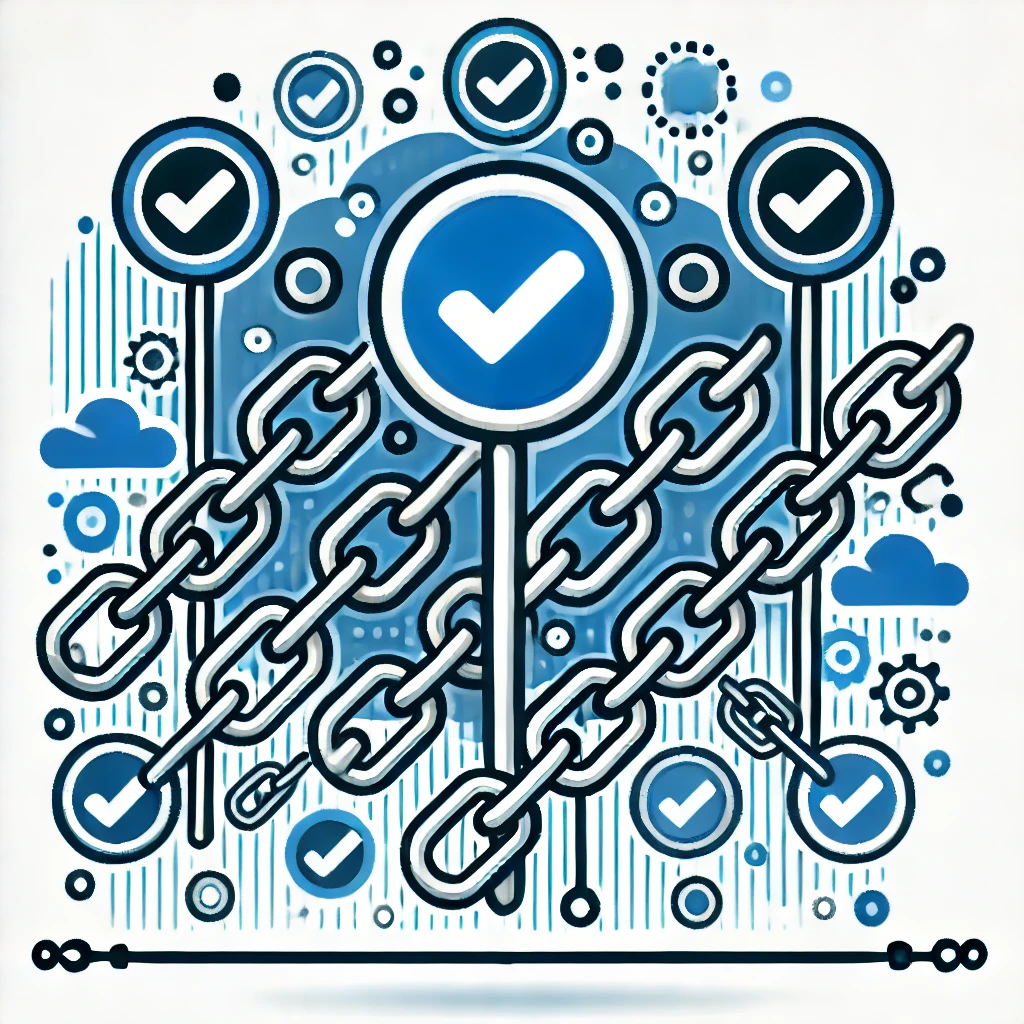Unlock the secrets of Domain Authority to boost your SEO strategy. Understanding Domain Authority (DA) is essential for a robust link-building strategy. Domain Authority is a search engine ranking score that predicts how well a website will rank on search engine result pages (SERPs). A higher DA indicates greater credibility and potential ranking power, making it crucial for successful SEO efforts.
Regarding link building, targeting high-DA websites for backlinks can significantly boost your site’s ranking. Not all links are equal; links from robust DA sites transfer more SEO value, enhancing your site’s authority. This directly impacts your website’s visibility and organic traffic.
Leveraging Domain Authority for strategic link building involves a thoughtful approach to acquiring high-quality links. Assessing the DA of potential linking sites, monitoring progress, and understanding ethical considerations are key to effective link-building tactics. Consistently focusing on these areas helps maintain a strong online presence and keeps your site competitive.
Key Takeaways
- Domain authority predicts website ranking capabilities.
- Links from high-DA sites improve your own site’s authority.
- Strategic link-building requires a focus on quality and ethics.
Understanding Domain Authority
Domain Authority (DA) is crucial for assessing a website’s strength and ranking potential. Grasping the origins and contributors to DA will enhance your strategic link-building efforts.
Concept and Development of Domain Authority
Developed by Moz, Domain Authority predicts how well a website will rank on search engine result pages (SERPs). Scores range from 1 to 100, with higher scores indicating higher ranking potential.
The concept stems from various factors, including link profile strength and historical performance. It’s a comparative measure that helps you evaluate your website against competitors. Originally, Moz created DA to provide a more nuanced view of website strength than PageRank.
Factors Affecting Domain Authority
Several elements influence your Domain Authority score:
- Root Domains and Linking Pages: The number of unique domains linking to your site.
- Link Quality: High-quality, relevant inbound links are prioritized.
- Site Structure and Content: Well-organized, regularly updated content.
- Social Signals: Engagement on social platforms can indirectly affect DA.
By focusing on these factors, you can strategically improve your website’s Domain Authority, enhancing your overall SEO efforts.
The Role of Domain Authority in SEO
Domain Authority (DA) is a key factor in SEO. It helps evaluate the quality of websites and serves as an important ranking signal.
Evaluating Domain Quality
Domain Authority quantifies the credibility of a website. Higher DA scores indicate more robust backlink profiles and relevance. To evaluate domain quality, you should focus on metrics such as backlink quantity, link diversity, and referring domains.
A higher DA often correlates with better content and trustworthiness. When analyzing domains, consider the site’s history, content strategy, and engagement metrics.
Domain Authority as a Ranking Signal
Domain Authority directly impacts search engine rankings. Search engines use DA to gauge a site’s potential to rank. Higher DA websites rank better in search results, improving visibility and traffic.
Factors influencing DA include inbound links, link quality, and SEO practices. Improving DA involves building quality links, maintaining consistent content updates, and engaging with reputable sites across your niche.
Strategies for Enhancing Domain Authority
Enhancing Domain Authority requires a deliberate approach to content creation and technical SEO. Focus on high-quality content marketing and ensure your site adheres to technical best practices.
Content Creation and Marketing
Producing high-quality content consistently can significantly boost your Domain Authority. Focus on creating informative, engaging, and relevant content for your target audience. Use keyword research to identify topics with high search volume.
Guest blogging on reputable sites can also drive traffic and earn valuable backlinks. Ensure your guest posts are insightful and add value to the hosting site’s audience. Interactive content such as quizzes, infographics, and videos can also be very effective.
Promoting your content via social media and email campaigns increases visibility and shares. Building partnerships with influencers or industry experts can further amplify your content’s reach.
Technical SEO Improvements
Optimizing technical aspects of your website ensures search engines can easily crawl and index your pages. Ensure your site is mobile-friendly and has a fast loading speed, as these factors are crucial for user experience.
Implementing a clean URL structure and using proper header tags helps outline the hierarchy of information on your site. Fix broken links and maintain a healthy link profile to prevent negative impacts on your site’s rankings.
Use XML sitemaps and robots.txt files to guide search engine crawlers. Installing SSL certificates and ensuring your site is secure is also essential in improving Domain Authority, as search engines prioritize secure sites.
Assessing Link Value
Understanding the value of a link is crucial to strategic link building. Investigate the quality of backlinks and the relevance of anchor texts to boost your Domain Authority effectively.
Analyzing Backlink Profiles
Evaluating a backlink profile involves looking at the source site’s Domain Authority, link context, and relevance to your content. High Domain Authority sites pass more value and credibility to your site.
Check for quality over quantity. A few high-quality links can be more beneficial than numerous low-quality ones. Consider the variety of linking domains. Diverse linking sources can indicate a healthy backlink profile.
Be wary of spammy links. Use tools like Moz, Ahrefs, or SEMrush to audit your backlink profile and disavow harmful links. Quality backlinks should come from relevant, authoritative sites, enhancing your site’s credibility and search engine rankings.
The Role of Anchor Texts
Anchor texts play a significant role in establishing the relevance and context of the linked page. They should be descriptive and relevant to the linked content.
Variety in anchor texts is essential. Overuse of exact match keywords can signal search engines of potential manipulation and hurt your rankings. Instead, opt for a mix of branded, generic, and long-tail keywords.
Avoid keyword stuffing in anchor texts. Natural and contextually appropriate anchor texts are vital. Proper anchor text distribution helps search engines understand your content better and strengthens your SEO efforts.
Monitoring Domain Authority Progress
Monitoring Domain Authority (DA) progress is essential to gauge the effectiveness of your link-building strategies. Consistently tracking DA helps you identify trends and refine your SEO tactics for better performance.
Tools for Tracking Domain Authority
Several tools can help you track Domain Authority. Moz provides a DA score directly within its SEO tools. To use Moz, input your website URL for a real-time DA score. SEMrush and Ahrefs also offer similar features and broader SEO insights.
These tools often come with additional metrics like backlinks and referring domains, giving you a comprehensive view. Regularly checking these scores can help you stay on top of your domain’s health and progress.
Interpreting Domain Authority Metrics
Interpreting DA metrics involves understanding what the numbers mean. A DA score ranges from 1 to 100, with higher scores indicating stronger domain strength.
Rather than focusing on small, short-term changes, look for consistent improvements over time. Compare your DA with competitors to understand your standing in your industry. Use this information to adjust your SEO strategies and improve your link building efforts effectively.
Challenges in Domain Authority Optimization
Optimizing for domain authority (DA) presents challenges, including adapting to algorithm changes and intense competition in many niches.
Mitigating the Impact of Algorithm Changes
Search engines frequently update their algorithms, which can significantly affect your DA. Staying updated with these changes is critical. You must audit your website regularly to ensure compliance with new SEO standards.
Consistent content updates and technical SEO adjustments are essential in maintaining DA. Ignoring these changes can decrease rankings, leading to potential traffic losses. Monitoring industry trends can help you anticipate shifts and prepare your site accordingly.
Dealing with Competitive Niches
Certain industries are highly competitive, making DA optimization even more challenging. Competing websites often have strong backlink profiles, making it hard to outrank them. To succeed, you should focus on acquiring high-quality backlinks from reputable sites.
Identifying less competitive keywords and targeting niche-specific content can give you an edge. Engaging in guest blogging and forming partnerships with other influencers in your field can also enhance your link-building efforts. Regularly analyzing your competitors’ strategies can provide insights into gaps you can exploit.
Ethical Considerations in Domain Authority Enhancement
When enhancing domain authority, ethical practices must guide your strategy. Avoid black-hat SEO techniques that manipulate search engine algorithms. These include link farms, automated link building, and buying links.
Focus on organic link-building methods. Create high-quality, relevant content that naturally attracts backlinks.
Maintain transparency with collaborators and partners. Ensure all link exchanges and guest posts are authentic and mutually beneficial. Using deceptive practices can result in penalties and harm your site’s reputation.
Respecting copyright and intellectual property is crucial. Always obtain permission when using others’ content and give proper attribution.
Consider your audience’s trust. Using spammy tactics or irrelevant links can drive visitors away and damage your credibility. Prioritize user experience and provide value in every interaction.
Frequently Asked Questions
Domain authority (DA) influences several aspects of SEO and link-building. Understanding its impact on rankings, strategies for improvement, and best practices is essential.
How does domain authority impact search engine rankings?
Domain authority predicts a website’s ability to rank on search engines. Higher DA often correlates with better rankings in search engine results pages (SERPs). Search engines use DA alongside other factors to evaluate the credibility and relevance of a site.
What strategies can you use to improve a website’s domain authority?
Key strategies include creating high-quality content, earning backlinks from authoritative sites, and regular technical SEO audits. Enhancing user experience and optimizing site speed also contribute to improving DA. Consistent efforts in these areas can gradually increase your site’s authority.
Can you explain the role of backlinks in enhancing domain authority?
Backlinks act as endorsements from other websites, signaling to search engines that your site is credible. Quality over quantity is vital; links from high-authority sites are more valuable. Building a diverse backlink profile from various reputable sources is crucial for enhancing DA.
What are the best practices for conducting a link building campaign with domain authority in mind?
Focus on earning links from authoritative and relevant sites. Avoid link farms or spammy practices. Use outreach, guest blogging, and content marketing to build high-quality backlinks. Monitor your link profile to ensure it aligns with your SEO goals and remains free of harmful or low-quality links.
How frequently should domain authority be evaluated for SEO purposes?
Regularly monitor domain authority at least once a month. Keeping track of DA trends can help you adjust your SEO strategies. Use established tools to check DA and stay informed about significant changes, which could indicate the success of your link-building efforts or the need for strategy adjustments.
What common mistakes should you avoid when trying to increase domain authority?
Avoid black-hat SEO techniques such as buying links or participating in link exchanges. Focus on quality content rather than manipulative tactics. Neglecting technical SEO aspects can also hinder DA improvement. Ensure a holistic approach to SEO, focusing on long-term, sustainable growth.






